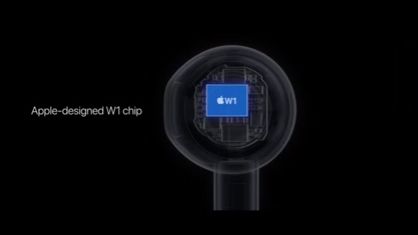Apple’s big press event kicked off in the first week of September, with the big hit of the show being the new iPhone 7, followed by the new Apple Watch, and the Apple AirPods – the modern day wireless headphones. Now that the iPhone 7 has been officially revealed, we know that it doesn’t have the traditional 3.5mm headphone jack that has been found on phones for at least the last decade and on other devices for much longer than that. For some of us, that little phone vagina offers up eargasms when we use it to send music to our car radios (or home audio systems, for that matter.) So far, the whole concept has had seen mixed opinions.
The new AirPods are cool but expensive. Some have offered up the opinion that there’s no way the wireless technology used can provide the same audio quality as a wired connection. The latter is a valid argument, by the way. If you don’t believe me, do an internet speed test on your laptop while connected to your router wirelessly, then do it again through a wired connection. You’ll find your transfer speeds are faster on a wired connection. Despite that argument, the new AirPods make use of Apple’s new W1 Chip, which could make pairing your phone to your car a lot easier and more predictable in the future.
So far, Apple has yet to break out the full details of how the W1 chip actually works, but we know it sucks very little power. And, during the announcement for the new AirPods, the term “Bluetooth” didn’t come up one time. So, it’s possible that the new W1 chip uses a different technology. Some sources are suggesting that it uses some new variant of Bluetooth technology while others claim it could be some kind of Wi-Fi transmission or even near field magnetic induction (NFMI.) Regardless, there is no pairing process as we know it through the current Bluetooth connectivity standards. So what does this mean for us in the car? Well, I’m glad you asked because I’m here to talk about exactly that.
What the W1 Chip Could Mean for Phone/Car Connectivity
If you’re someone who enjoys the idea of having a conversation without having to touch your phone, you’ve probably made good use of the Bluetooth connectivity in your car. You can listen and reply to text messages, answer and send calls, and in some cases even reply to e-mails without even having to touch your phone – once it is actually paired with your vehicle, that is. Well, if Apple beings to offer this chip up to automotive manufacturers to be used in their infotainment systems, Bluetooth will suddenly be far less important than it is now.
For starters, you won’t have to go through the pairing process in a car that has the W1 chip installed. For the new AirPods, pairing is as simple as opening the case in close proximity to the iPhone 7. That being the case, pairing in a car could be as simple as turning on the ignition with your iPhone inside the car – it sure beats having to input codes in the phone and the radio when pairing, right? Next, let’s talk about the overall reliability of Bluetooth. As someone who uses Bluetooth quite a bit, I have to say it suffers a lot of interference from time to time. Sometimes, your phone won’t sync with your car like it should. Normally this happens if the phone is stashed away in your pocket (or purse, for the ladies out there) and you physically have to check to see if the phone connected like it should. Ultimately, you can miss calls, or get distracted when driving, if your phone didn’t pair correctly and you try to make a call. On top of that, I know I’m not the only one who gets irritated when Bluetooth cuts out while music is streaming – that’s enough to cause a mild case of road rage toward the unsuspecting driver that’s been on your bumper for the last 20 miles.
The new W1 chip, if introduced to auto manufacturers, could put an end to these problems altogether. That’s assuming that it works as good as Apple claims it does, of course. And, since we don’t know what the chip is really capable of, it could come with other benefits as well. We know it obviously does audio transmission, but can it transmit other data too? If it does, it could become the basis for an improved form of Apple CarPlay that provides even more functionality like advanced app sharing and even file storage, all while working faster and more efficiently than Bluetooth.
For now, most of this is just speculation, but there could be some major benefits brought forth by the W1 chip if it is as capable as we all hope it really is. Fortunately, we’ll learn as time goes by, but with Apple beings as innovative as it is, it’s certainly a possibility that this new W1 chip will find its way into car audio systems in the future. For now, we’ll just sit back and watch. What do you think? Will Apple's new W1 chip revolutionize the way we connect our phones to our cars? Will it provide even more features than anything we have now? Let us know in the comments section below.

